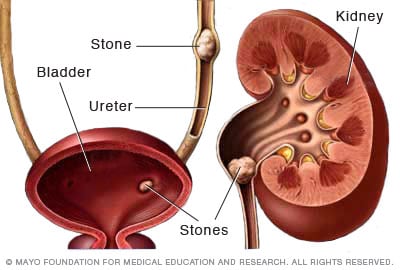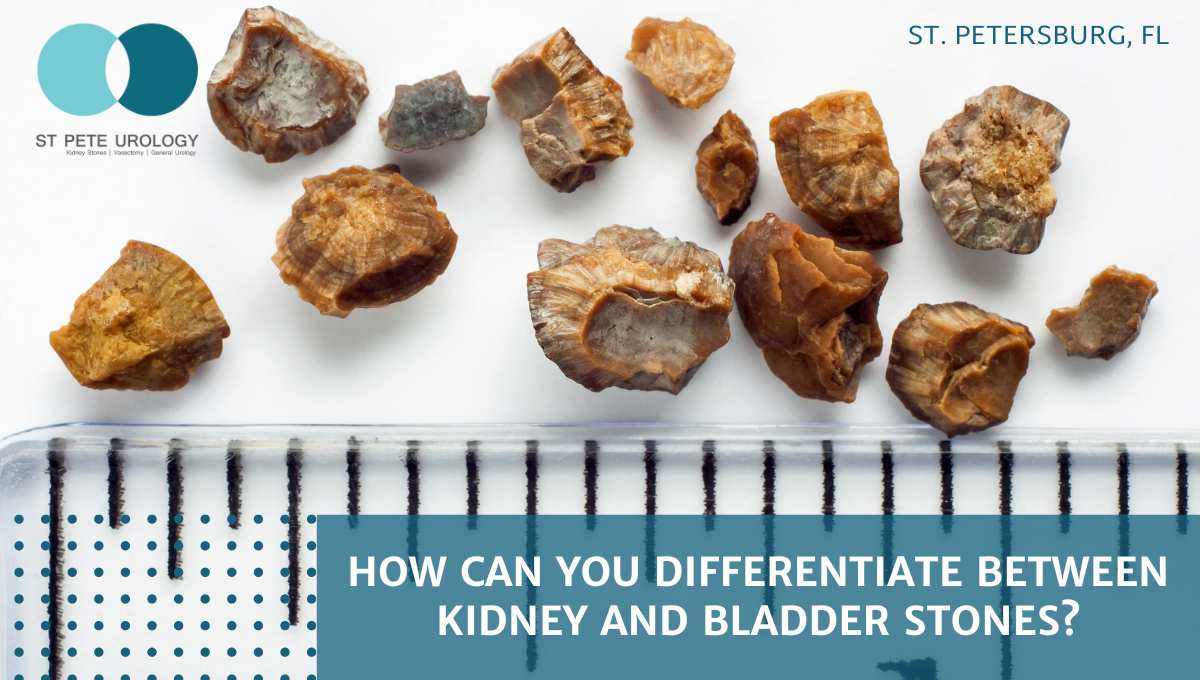Understanding the Key Distinctions Between Kidney Stones and Urinary System Infections: A Detailed Summary for People
Understanding the distinctions in between kidney stones and urinary tract infections (UTIs) is necessary for people who may be experiencing similar symptoms yet face vastly various health obstacles. While both problems can materialize pain in the reduced abdominal area or back, their hidden causes, diagnostic methods, and treatment protocols diverge considerably. A nuanced comprehension of these differences not only aids in accurate self-assessment however likewise notifies discussions with doctor. As we check out these essential facets, it comes to be clear that identifying the special attributes of each condition can exceptionally affect individual results. What might be the most effective approach to attending to these distinctions?
Review of Kidney Stones
The development of kidney stones, a often devastating and uncomfortable problem, emphasizes the critical importance of preserving kidney wellness. The key types of kidney stones consist of calcium oxalate, calcium phosphate, uric acid, struvite, and cystine stones, each with unique reasons and danger variables.
A number of elements contribute to the formation of kidney stones. In addition, metabolic conditions and specific clinical conditions might predispose people to stone formation.
Signs of kidney stones can consist of extreme flank discomfort, nausea, and hematuria, which often prompt urgent medical analysis. Therapy options vary, ranging from enhanced liquid consumption and dietary adjustments to clinical treatments such as lithotripsy or surgical elimination, relying on the size and location of the stones. Understanding these facets is necessary for efficient prevention and monitoring.
Overview of Urinary Tract Infections
Urinary system tract infections (UTIs) stand for an usual yet substantial health and wellness concern, influencing countless people annually. These infections occur when bacteria get in the urinary system, which consists of the kidneys, ureters, bladder, and urethra. The bulk of UTIs are triggered by Escherichia coli, a kind of germs generally located in the intestinal system. While UTIs can impact any person, they are especially widespread in ladies as a result of physiological differences that promote bacterial access.
The danger variables for creating a UTI consist of sex-related activity, particular kinds of birth control, urinary system retention, and a history of previous infections. Straightforward UTIs are usually limited to the bladder and are extra typical in healthy individuals, while difficult UTIs might entail the kidneys and occur in those with underlying health issues.
Prompt diagnosis and treatment are necessary to protect against issues, such as frequent infections or kidney damages (Kidney Stones vs UTI). Normally, UTIs are treated with anti-biotics, and safety nets can be used for those with constant incidents
Typical Symptoms Contrast
Signs and symptoms of urinary system system infections and kidney stones can frequently overlap, leading to complication in diagnosis. Both conditions can offer with discomfort in the lower abdomen or back, but the nature and place of the pain usually vary. In urinary system infections (UTIs), clients usually experience a burning sensation throughout urination, frequent advises to pee, and over cast or strong-smelling urine. On the other hand, kidney stones often tend to trigger serious, sharp pain that emits from the back to the lower abdominal area and groin, typically called colicky discomfort.
Additionally, UTIs might be gone along with by high temperature and chills, especially in more extreme situations, while kidney stones can lead to queasiness and throwing up because of extreme pain. Both problems can result in blood in the pee (hematuria), yet the visibility of blood is extra frequently related to kidney stones. While pain throughout urination is a hallmark of UTIs, kidney stones typically provide with more acute discomfort episodes, which may come and go. Recognizing these symptom distinctions can aid individuals in identifying their condition, although medical evaluation stays crucial for accurate diagnosis and therapy.
Diagnosis Techniques
How can healthcare experts precisely separate in between kidney stones and urinary tract infections? The diagnostic process begins with a complete case history and a detailed review of the individual's signs. Medical professionals usually do a physical exam, which might expose tenderness in the abdominal area or flank area, assisting the diagnostic path.
Laboratory tests play a crucial duty in comparing these 2 conditions. Kidney Stones vs UTI. A urinalysis can recognize the visibility of blood, crystals, or microorganisms, which are a measure of either problem. In situations of urinary tract infections, the urinalysis may reveal a significant presence of white blood cells and nitrites, while kidney stones may present with specific crystals
Imaging studies, such as abdominal ultrasound or computed tomography (CT) scans, are essential for envisioning kidney stones. These you can look here imaging techniques make it possible for medical care carriers to examine stone dimension, place, and possible obstructions in the urinary system system. In contrast, urinary system tract infections commonly do not need imaging unless problems are believed.
Together, these analysis techniques empower medical care specialists to precisely distinguish and detect in between kidney stones and urinary system system infections, ensuring that people obtain suitable treatment and management.
Treatment Alternatives and Prevention
While both kidney stones and urinary tract infections (UTIs) call for prompt therapy, their monitoring approaches vary substantially.
The treatment for kidney stones usually entails pain administration, hydration, and in many cases, medical treatments such as extracorporeal shock wave lithotripsy (ESWL) or ureteroscopy to eliminate or damage down stones. People are frequently suggested to enhance fluid consumption to promote stone flow and reduce reappearance. Dietary adjustments might additionally be necessary, relying on the stone type.
In contrast, UTIs are mainly treated with prescription antibiotics to remove the bacterial infection. The see post details antibiotic prescribed depends on the bacteria identified and regional resistance patterns. Extra procedures, such as boosted liquid consumption and urinary system analgesics, may help minimize signs.
Prevention techniques differ as well; for kidney stones, keeping appropriate hydration and sticking to nutritional limitations can be effective. For UTIs, preventive strategies consist of appropriate health methods, urinating after sexual intercourse, and perhaps prophylactic prescription antibiotics for recurrent infections. Understanding these therapy and prevention modalities is essential for reliable monitoring and to lessen the danger of problems related to both conditions.
Verdict

Understanding the differences between kidney stones and urinary system infections (UTIs) is vital for clients that might be experiencing similar signs and symptoms yet encounter greatly different wellness difficulties. The main kinds of kidney stones consist of calcium oxalate, calcium phosphate, uric acid, struvite, and cystine stones, site web each with distinct causes and threat factors.
